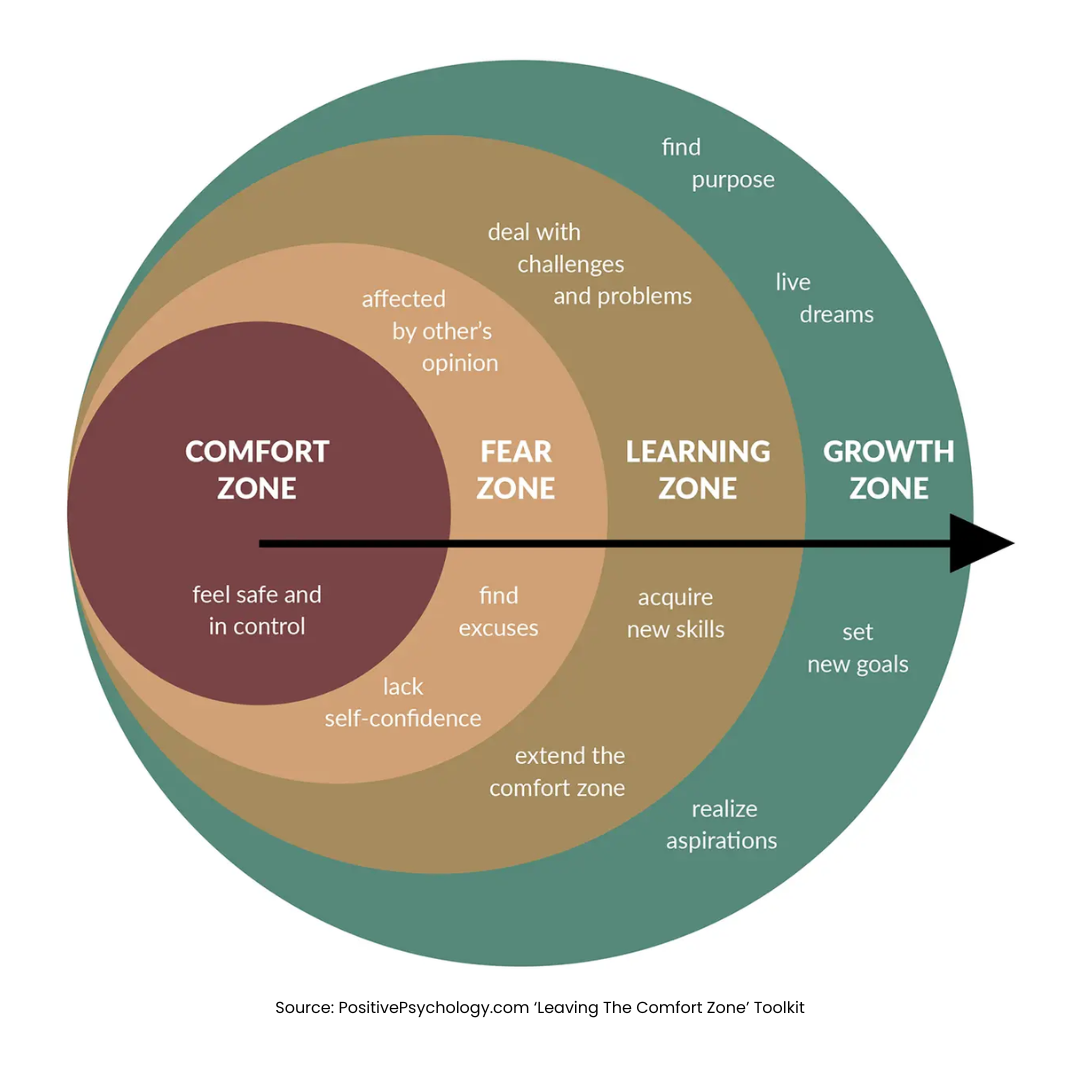Impostor syndrome, otherwise known as having an inferiority complex. It’s where we experience inadequacy and self-doubt.
It’s where we beat ourselves up if we don’t get things right. It’s where we avoid responsibility because of fear of failure. It’s where we fear judgement and someone discovering that we’re not as good as we appear to be. And it’s where we don’t allow ourselves to celebrate our successes – something which is key in managing impostor syndrome, which we’ll come to in a later task.
We often experience impostor syndrome when we come up against something deeply meaningful because we put so much pressure on ourselves to get it right. And what’s more meaningful than becoming a parent?
So how do we move from assumption to reality? How can we embrace impostor syndrome and use it to our advantage?
Well, feelings of discomfort can lead to personal growth. Take a look at this diagram, showing the four zones from comfort through to growth.

Firstly, think about when you have previously left your comfort zone. Then think about how you can start to move outside of it.
Here are some small steps you can take:
- Do everyday things differently
- Expand your professional skillset
- Get creative, find new ways of doing things or learning something new
- Challenge your beliefs. Especially the self limiting ones. So next time you find yourself saying you can’t do something, ask yourself why. Are there any patterns coming up that you can try to break?
Recognising opportunities to leave your comfort zone isn’t always easy; neither is seizing them with conviction.
You can settle for what you know – the seemingly safe, familiar and routine. Or, you can become open to opportunities for growth, challenging your personal status quo and seeing what you’re really capable of.
And when this way of thinking becomes a habit, the benefits will come thick and fast.
Ayesha Murray is a partner coach with Careering into Motherhood.
December 5, 2022

